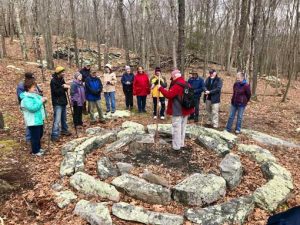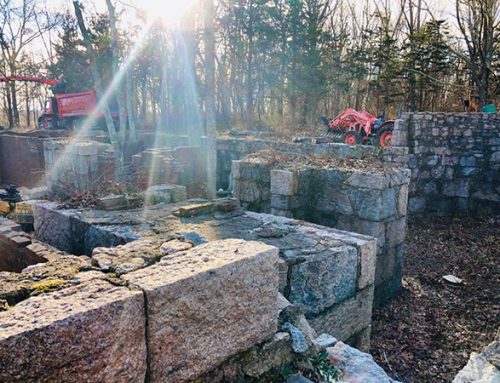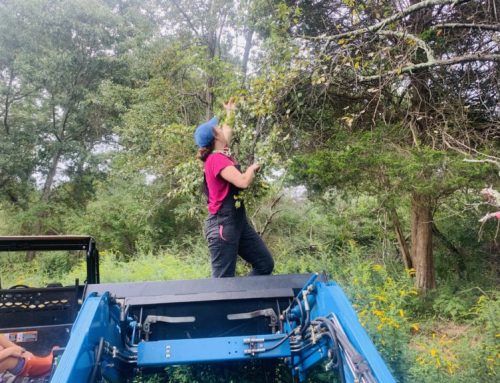
After a multi-year research and documentation process funded by a grant from the State Historic Preservation Office, the Department of Energy and Environmental Protection’s Gungywamp property was confirmed to the Connecticut State Register of Historic Places and named a State Archaeological Preserve.
Denison Pequotsepos Nature Center assists in the interpretation and management of the Gungywamp property, leads guided public-access hikes and natural history tours, documents the property and assists with trail maintenance. The property consists of three parcels totaling 270 acres in Groton, CT, with significantly varied habitats. In addition, a series of stone structures of historical and cultural significance are of particular interest to the public.
The inclusion of Gungywamp in the Connecticut State Register of Historic Places solidifies its position as a vital cultural landmark. This recognition is a reflection of the collaborative efforts and commitment of the state of Connecticut and Denison Pequotsepos Nature Center in preserving shared history. With this inclusion, DPNC is better positioned to partner with the State on policies to protect the property, while providing increased access to the property for educational purposes. DPNC hosted more than 335 individuals on guided hikes of Gungywamp last year.
The Property
Gungywamp is one of the more complex, enigmatic and significant cultural landscapes in Connecticut. A visit to the property reveals more than 4,000 years of human and natural history, along with rocky ridges, indigenous artifacts, forest layers, glacial erratics, beaver dams, stone circles, stone chambers and rock etchings.
The most significant cultural and historical questions about Gungywamp hinge on the varied assemblage of above-ground stone features and structures. Academics and researchers offer differing opinions regarding the genesis of the structures: sacred indigenous ritual and ceremony, evidence of Colonial farming and occupation or signs of pre-Columbian Irish Culdee monks. There is general agreement among most stakeholders that whatever Gungywamp is, it is not a typical Euro-American colonial agricultural landscape.
Continued preservation of Gungywamp will contribute to public knowledge about the site’s significance and the importance of cultural resource preservation. The property will be maintained as a permanent open-space preserve and protected against future development.
Since 1946, Denison Pequotsepos Nature Center (DPNC) has provided the community and visitors with opportunities to better understand and appreciate the natural world and our place in it. DPNC manages and stewards a 400-acre greenway with more than 10 miles of trails. DPNC also assists with or manages, several additional properties in conservation easements or trusts including the Manatuck Preserve in Stonington and the Peace Sanctuary and Gungywamp properties in Groton.
As the nominating organization, DPNC Executive Director Davnet Conway noted, “We are pleased to have been able to nominate Gungywamp to the State Historic Register with the additional designation as an Archaeological Preserve. This designation allows us to continue to satisfy the public’s curiosity about the incredible indigenous and colonial stonework of the site, while providing additional protections for its preservation.”
A guided media tour of the property is planned for later this month. To join the tour, contact Anna Sawin, DPNC Director of Marketing & Communications at [email protected].
Members of the public wishing to tour Gungywamp may book a private guided tour of the property by contacting [email protected], or may register for one of the monthly public tours led by DPNC. Dates can be found at dpnc.org/events; this month’s Gungywamp tour tickets can be purchased here.


